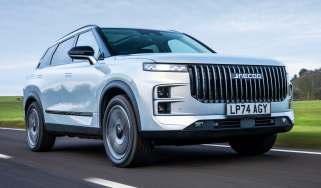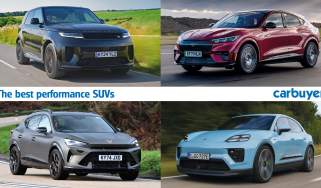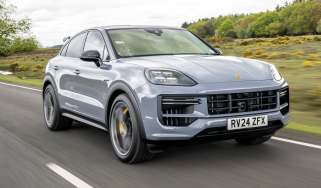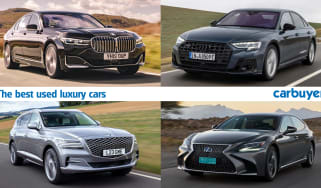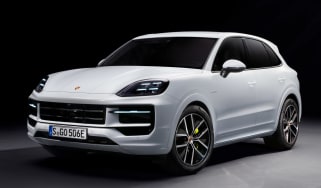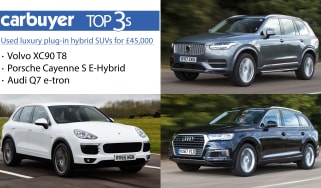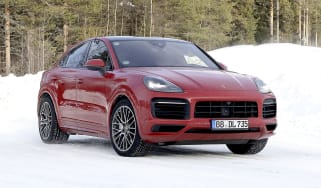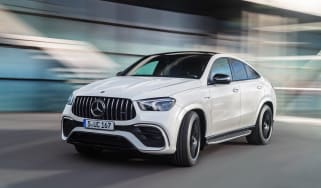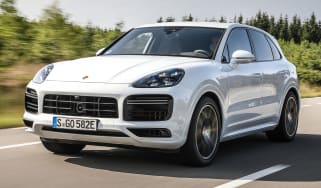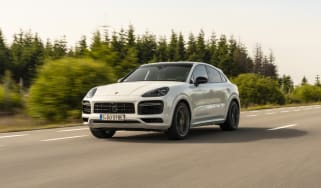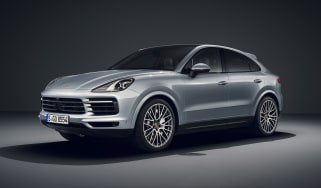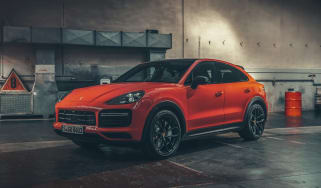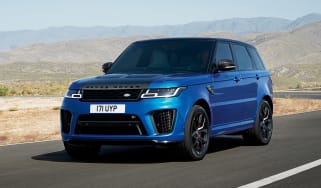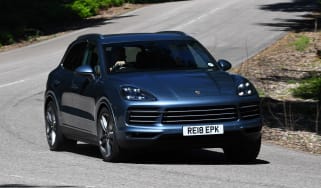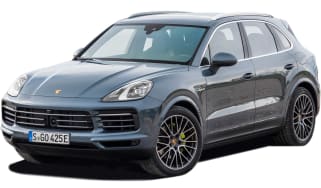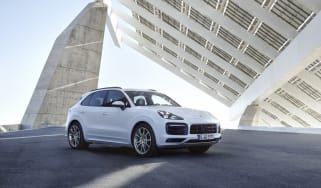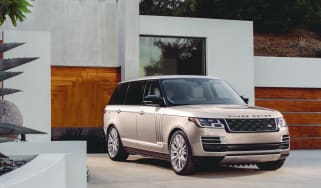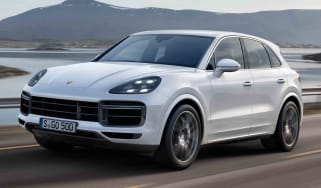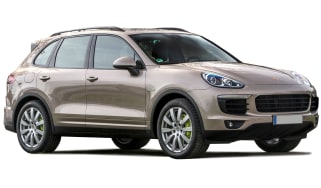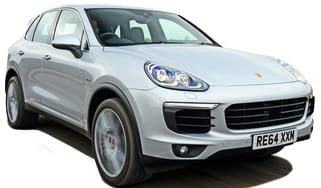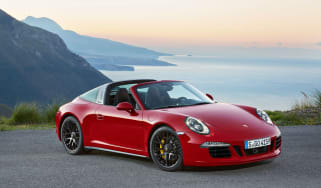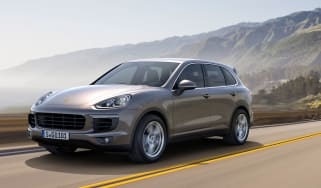Porsche Cayenne review – one of the best-handling SUVs
"The Porsche Cayenne offers the brand's expected driving appeal, packaged as a practical, comfortable SUV"
Pros
- Scorching performance
- Remarkable handling
- Everyday practicality
Cons
- Predictable looks
- High running costs
- No seven-seat option
Verdict - Is the Porsche Cayenne a good car?
The Porsche Cayenne has long been praised for its ability to handle well ‘for an SUV’ – now though, that caveat can be thrown in the bin, because the Cayenne handles brilliantly full-stop. However, we do wish air suspension was standard, given how well it improves the balance of comfort and handling in the E-Hybrid model. The plug-in E-Hybrid models still feel remarkably good to drive despite their weight, too, and the Cayenne as a whole is still very practical despite the lack of a seven-seat option. Beware of high running costs, though, and while the Cayenne is certainly not bad-looking, it may be too subtle if you want something that stands out.
Porsche Cayenne models, specs and alternatives
It’s now common for most manufacturers to offer an SUV model in their lineup, but back when the Porsche Cayenne was first introduced, it was a controversial step for the brand known for its sleek sports cars. The Cayenne revolutionised the way an SUV could drive and proved a success for Porsche, allowing the brand to survive for future generations, so it’s safe to say it’s an important car. The modern version now faces a wide range of rivals in the performance SUV segment, including the Bentley Bentayga, Aston Martin DBX, Maserati Levante and Ferrari Purosangue.
More reviews
The Cayenne sits on the same platform as the Audi Q8 and Bentley Bentayga but offers plenty of choice for buyers. A facelift in 2023 brought updates to the Cayenne’s looks, including new, more angular matrix-LED headlights, a revised front bumper, sharper front wings, a new bonnet and a revised light bar at the back.
 Best luxury SUVs to buy in 2025
Best luxury SUVs to buy in 2025
The range of petrol and hybrid powertrains was also revised. The entry-level Cayenne models now feature the brand’s latest 3.0-litre twin-turbocharged V6 engine, which competes with the Mercedes GLE, BMW X5 and Range Rover Sport. The E-Hybrid model uses this V6 engine and pairs it with an electric motor and larger 25.8kWh battery than before, giving an improved maximum 56-mile range compared with the pre-facelift model’s 25 miles.
Cayenne S models swap the previous 2.9-litre V6 engine for 4.0-litre twin-turbocharged V8 power, and above that is a racier GTS model using the same engine with a slight increase in power, but it seems expensive for just a marginally sportier drive – the Turbo model has been removed from the range entirely in the UK. There’s also a Cayenne S E-Hybrid model, with even more power from the 3.0-litre V6 hybrid system than the standard E-Hybrid. Right at the top of the range is the most powerful Cayenne Turbo E-Hybrid, which instead pairs the V8 engine with a hybrid system for an eyewatering 729bhp.
The latest car is easily recognised as a Cayenne and has overtones of the smaller Porsche Macan, a car that looks far more lithe and dynamic than previous Cayennes ever did. While Porsche hasn't taken any big risks with the latest model's looks, it's undeniably handsome and fits in well with other models in the range – not looking uncomfortable in the presence of the Porsche 718 Cayman or Porsche 911 sports cars. Now, there's also the Porsche Cayenne Coupe that boasts the same engine range (plus a Turbo E-Hybrid GT range-topper) but with sleeker looks.
The same is true inside, where the look and feel is very much like the Porsche Panamera hatchback or its shooting-brake-styled Panamera Sport Turismo sister – the interior’s 2023 redesign brings more extensive use of digital dashboard tech, as seen in the Porsche Taycan, with a second infotainment screen in front of the passenger seat. It’s taken the Cayenne another step ahead of its closest rivals, with excellent materials and crystal-clear graphics on those screens, while the physical controls that remain are still great to use.
There's plenty of interior space, and the boot is at least as generous as its rivals. However, it's on the road that Porsche has taken the most effort to ensure it fits with expectations of the brand.
We’ve now driven the revised Porsche Cayenne in both its base form and as the Cayenne E-Hybrid, and it’s no less impressive than it’s ever been. The basic car’s new 3.0-litre V6 has resulted in a subtle but welcome uptick in performance, with improved responses and a sporty sound when you’re working it hard, but enough refinement to fade into the background at a cruise. It still does the same trick of feeling like a smaller car on the road than you’d expect, too.
The E-Hybrid also benefits from Porsche’s chassis updates, including adaptive dampers with more highly adjustable valve compression and rebound settings, allowing for finer control over its wheel and body movement. It’s even more fun to drive than before, and comfort has been improved at low speeds around town. The big SUV still feels slightly lumpy on 22-inch wheels and on steel springs, with the worst bumps occasionally transmitted through to the cabin, but the facelift’s chassis offers a better balance that has also reduced body roll at higher speeds. Air suspension is not fitted as standard on this model, but we highly recommend opting for it, as it really improves the Cayenne’s ride and handling, making it even more versatile.
It comes as no surprise that this third generation of Porsche Cayenne is the best yet, but it comes as quite a shock that it should be quite so responsive and involving to drive. Taking the SUV route when choosing a fast, practical family car used to involve compromised driver appeal – even the previous Porsche Cayenne struggled to feel truly agile and fleet-footed. The latest model, though, feels truly worthy of the Porsche crest on its nose.
Porsche models aren't always crash-tested, but the Cayenne's popularity means Euro NCAP has tested its flagship SUV, and given it the top five stars, reassuring customers. It's also noteworthy that Porsche topped our 2021 Driver Power survey.
Porsche describes the Cayenne as its 'sports car for five'. A bold claim, but one that rings true. It's expensive and the usual Porsche running cost caveats apply, but few practical family SUVs are quite so rewarding to drive.




